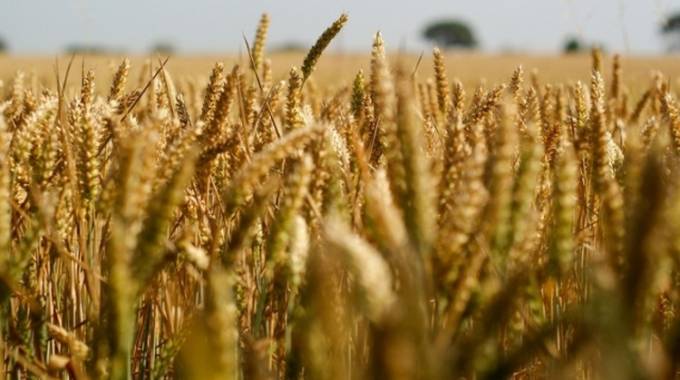
Wallace Ruzvidzo
FARMERS have harvested and delivered more than 100 000 tonnes of wheat from the 2020 winter cropping season to the Grain Marketing Board (GMB), eclipsing the 90 000 tonnes delivered for the whole of last year.
GMB is receiving over 4 000 tonnes of the cereal per day, with the parastatal’s depots now operating daily.
Zimbabwe is projected to harvest over 250 000 tonnes of the grain — enough to cover nine months’ supply and save the country over US$100 million through import substitution.
GMB general manager Mr Rockie Mutenha told The Sunday Mail that farmers are receiving payments on time and getting premium prices.
A tonne of utility or ordinary wheat is fetching $43 778, 84 per tonne, while prices of grade A wheat are pegged at $52 534,61 for the same quantity.
“We are receiving a minimum of 4 000 tonnes of wheat a day and as of yesterday (Thursday), we had received 105 000 tonnes,” said Mr Mutenha.
“We are working flat out, 12 hours a day, including weekends, and we are paying them on time.
“We are receiving money from the Ministry of Finance and Economic Development with no hassles.”
GMB, he said, was paying a higher price compared to most private buyers.
“This year we are grading our wheat between premium and standard grades so that farmers get value for their wheat.
“Farmer are not delivering wheat to private players because we are paying the highest price.”
Grain Millers Association of Zimbabwe media and public relations manager Mr Garikai Chaunza said there was unlikely to be wheat shortages this year if farmers continue to deliver to GMB.
“If raw materials are available, there is no reason for final products to be unavailable,” said Mr Chaunza.
“If the value chain is supplying, then there is no reason for us to have shortfalls.”
Zimbabwe needs at least 400 000 tonnes of wheat annually to meet demand.
The Ministry of Lands, Agriculture, Water and Rural Resettlement plans to introduce summer wheat production starting with the 2021-2022 season to ensure wheat self-sufficiency and cut of future imports.
Government recently acquired combine harvesters under the US$51 million John Deere programme and the US$51 million Belarus mechanisation facility to facilitate efficient harvesting.
